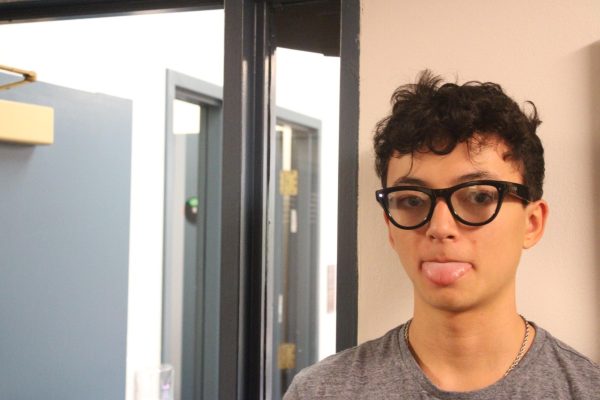Patagonia Founder Donates Company to Help Fight Climate Change
Senior Ethan Mullens sports his Patagonia merchandise
The founder of Patagonia, Yvon Chouinard, recently transferred majority ownership of the company to a not-for-profit organization, Holdfast Collective, to preserve Patagonia’s independence and to channel future profits to the environmental causes that Chouinard has embraced. (A small percentage of the shares of the company that come with voting control will be held in an entity called the Patagonia Purpose Trust.) Through this transfer, Chouinard not only parted with a company worth an estimated $3 billion but also ensured that Patagonia’s profits, which are in the range of $100 million annually, will be used to combat climate change and protect undeveloped land around the globe.
Despite his good deed, some are skeptical of the switch, accusing Chouinard of having donated the company to evade heavy taxes he would have faced had he sold the company.
Latin Student Investment Fund (LSIF) advisor and Upper School math teacher Michelle Neely said, “If he’s doing [a donation] to avoid a $700 million tax and it’s good for the planet, so be it.”
Chouinard, a committed environmentalist, has never been one to enjoy the “billionaire” title. Thus, he has decided to distribute his fortune into two entities: a not-for-profit and trust. Chouinard will exit the business world in relief, knowing he is not carrying the billionaire label that people may see before his good deeds that clothe many and combat climate change.
Patagonia apparel is worn globally, and also locally, in Latin’s hallways. It is a popular brand many students can be seen sporting during the cooler Chicago months.
Junior Reese Benford said, “I appreciate how both comfortable and practical the clothing is. Wearing Patagonia is important to me, as I know the products are ethically produced and do not harm the environment.”
A common appreciation for the comfort of the products as well as their easy use throughout the duration of the year makes it a popular brand for the student body.
Senior Kaden Stone, who is often seen wearing Patagonia throughout the year, said, “Patagonia’s durability allows me to live life to the fullest.”
Similarly, freshman Laila Ciaccio said, “I think I wear it because it’s casual and cute but also really practical for other things like hiking/skiing and other activities.”
No matter Chouinard’s true intentions, it is important to question the route that other environmentally friendly companies might take in regards to ownership following Chouinard’s decision to donate his company. Will others also donate their companies? If so, is it because they care to donate, or because they don’t want to pay heavy taxes?
Junior and member of LSIF Annika Puri said, “I think [the donation] is unique to Patagonia, as other companies will donate shares but not fully commit to giving away the entire company.”
This bold move made by Chouinard could alter the future landscape of eco-friendly investments and possibly change the companies that attract consumers. The goal of the LSIF club is to provide students with hands-on experiences: learning the ins and outs of the stock market and making educated investments. In past years, the LSIF investment landscape has been limited to solely two environmentally friendly companies: Waste Management and NextEra Energy. It is unknown if more environmentally conscious companies like Seventh Generation, Allbirds, and Pangaia will be added to the investment landscape.
Ms. Neely said, “I think the portfolio we have could be more forward-thinking with regards to renewable energies and electronic vehicles and some of those topics. But they’re also not flashy, and [the stocks] also take a long time to grow.”
Ms. Neely, who optimistically hopes for a change, predicts that may hold true as the economy continues to fixate solely on production and output instead of saving the earth.
Junior Michael Cardoza said, “People like to believe that they do things [in] the best [way], so I don’t see why they would want to give up their companies, as money is a huge driving factor for everything.”




















































